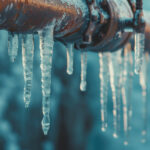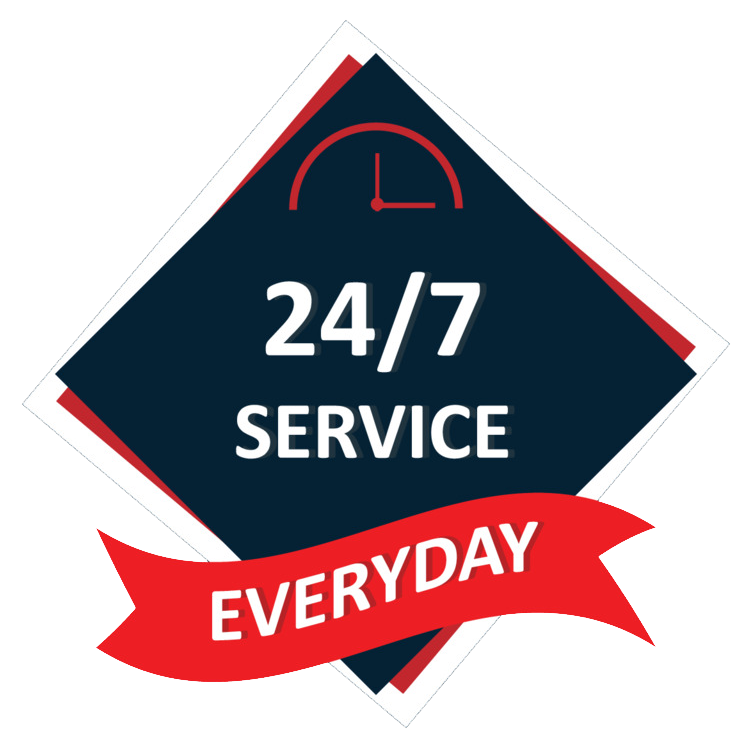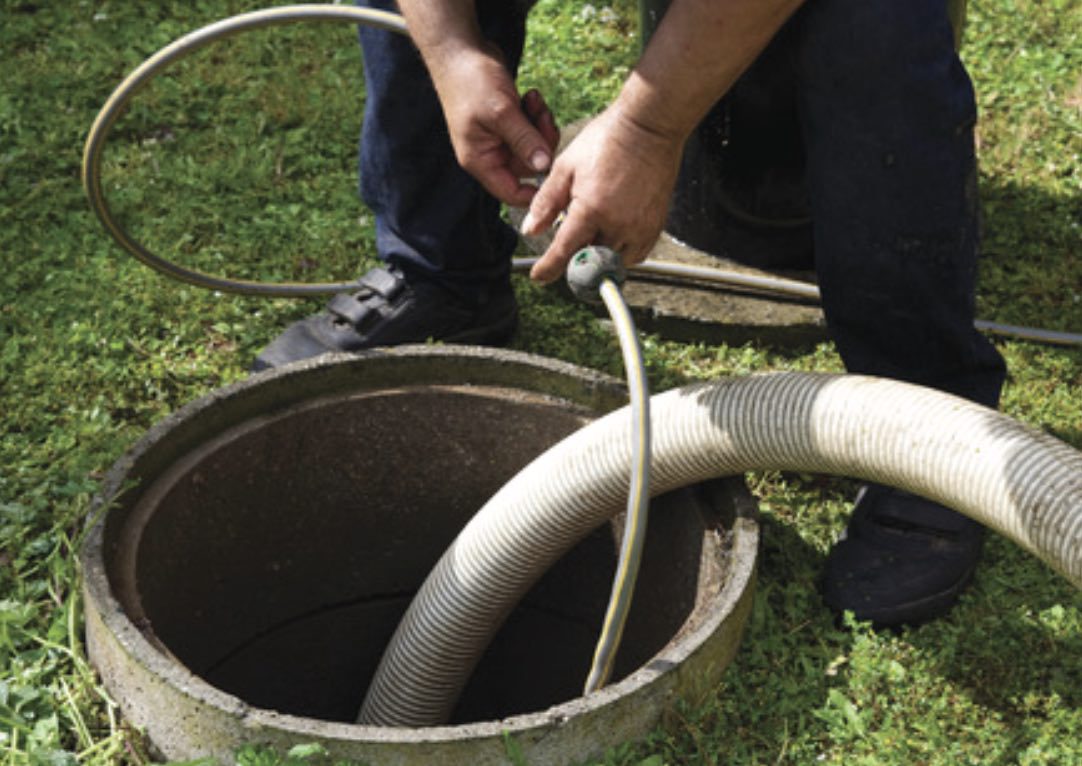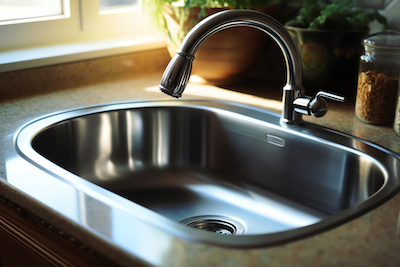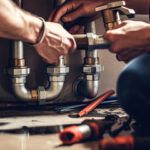How do I prevent plumbing problems?
"Top 10 Tips for Preventing Common Plumbing Issues at Home"
This article provides valuable information and Tips for you on how to maintain your plumbing systems, avoid costly repairs, and increase the longevity of your pipes and fixtures. Plan B Bathroom & Remodeling provides several services to make maintaining your plumbing system simple and easy. Leave the worry to us! We are always available to assist in your needs.
Maintaining a healthy plumbing system is crucial for several reasons:
- Preventing Costly Repairs:
Regular maintenance helps identify and address potential issues early on, preventing them from escalating into major and costly repairs down the line. - Ensuring Water Quality:
A well-maintained plumbing system helps ensure the quality of the water that flows through it, reducing the risk of contamination and health hazards. - Conserving Water:
By keeping plumbing fixtures in good condition and promptly fixing leaks, homeowners can conserve water and reduce their water bills. - Preventing Water Damage:
Proper maintenance can help prevent leaks, bursts, and water damage in the home, preserving the structural integrity and aesthetics of the property. - Maintaining Home Value:
A healthy plumbing system contributes to the overall value of a home. Regular maintenance shows potential buyers that the property has been well cared for. - Promoting Health and Safety:
Addressing plumbing issues promptly can prevent the growth of mold, mildew, and other harmful substances that thrive in damp environments, safeguarding the health of occupants. - Sustainability:
By maintaining a healthy plumbing system, homeowners contribute to environmental sustainability by reducing water waste and the need for unnecessary repairs or replacements.
Overall, maintaining a healthy plumbing system is essential for the well-being of the home, its occupants, and the environment. Regular upkeep and preventative measures can help homeowners avoid inconvenience, expenses, and potential health risks associated with plumbing problems. Remember, Plan B Bathroom & Remodeling is always here to help. Below are 10 helpful tips to save you time and costly mishaps.
Tip 1: Regularly Inspect for Leaks:
Regularly inspecting for leaks in faucets, toilets, and pipes is crucial for several reasons:
- Water Conservation:
Identifying and fixing leaks promptly can help conserve water, reducing water waste and lowering utility bills. - Preventing Water Damage:
Leaks, no matter how small, can lead to water damage over time. Regular inspections help catch leaks early before they cause significant harm to walls, floors, and ceilings. - Mold and Mildew Prevention:
Damp environments created by leaks can promote the growth of mold and mildew, which can pose health risks to occupants. - Maintaining Water Pressure:
Leaks can reduce water pressure in faucets and showers, affecting the overall performance of plumbing fixtures. - Preventing Structural Damage:
Continuous leaks can weaken the structure of the building, leading to potential issues with the foundation or walls.
Even small leaks can lead to bigger problems if left unattended because:
- Escalation of Damage:
Over time, even a small leak can worsen and cause more extensive damage to surrounding materials, potentially requiring costly repairs or replacements. - Increased Water Bills:
Unaddressed leaks result in continuous water wastage, leading to higher water bills for homeowners. - Health Hazards:
Standing water from leaks can become a breeding ground for bacteria and mold, posing health risks to occupants, especially those with respiratory issues. - Compromised Structural Integrity:
Leaks can compromise the structural integrity of the building, leading to issues such as rotting wood, weakened foundations, and sagging ceilings.
In conclusion, regular inspection for leaks in faucets, toilets, and pipes is essential to prevent water waste, water damage, mold growth, and other costly consequences. Addressing even small leaks promptly can help maintain a healthy plumbing system and prevent more extensive problems in the long run.
Tip 2: Watch What You Flush:
Watching what you flush down the toilet is important for the following reasons:
- Preventing Clogs:
Flushing items other than toilet paper, such as wipes, cotton balls, and paper towels, can lead to clogs in the pipes. These items do not break down as easily as toilet paper and can accumulate, causing blockages. - Protecting the Plumbing System:
Flushing non-flushable items can damage the plumbing system, leading to costly repairs and potential backups. Septic-safe toilet paper dissolves quickly in water, reducing the risk of clogs and ensuring smooth flow through the plumbing system. Using septic-safe toilet paper is recommended for homes with septic systems to help maintain the system's efficiency and prevent issues with clogs and backups. - Maintaining Proper Function:
Flushing only toilet paper helps ensure that the plumbing system functions as intended, reducing the risk of blockages and backups. Flushing inappropriate items can contribute to sewer system overflows and backups, affecting not only your property but also the larger sewer network.
Tip 3: Be Mindful of Grease Disposal:
Disposing of grease down the drain is harmful for your plumbing system due to the following reasons:
- Clogs:
Grease solidifies as it cools, leading to the buildup of fatty deposits in the pipes. Over time, this can cause blockages that impede the flow of water and lead to clogs. - Odors:
Accumulated grease in the pipes can emit foul odors, affecting the air quality in your home. - Pipe Damage:
Grease can coat the interior of pipes, contributing to corrosion and reducing the lifespan of your plumbing system.
To prevent clogs in the drain caused by grease and cooking oil, it is important to dispose of them properly:
- Cooling and Solidification:
Allow grease and cooking oil to cool and solidify after use. This can be done by pouring the grease into a container and letting it cool until it hardens. - Scraping and Wiping:
Scrape leftover grease and oil from pots, pans, and utensils into the trash before washing them. Use paper towels to wipe down greasy surfaces instead of rinsing them in the sink. - Use of Grease Traps:
Consider using a grease trap or interceptor in your kitchen sink to capture grease and prevent it from entering the plumbing system. - Collecting for Disposal:
Store solidified grease in a container, such as a jar or can, and dispose of it in the trash. Avoid pouring grease down the drain or flushing it down the toilet. - Recycling:
Some municipalities offer grease recycling programs where you can drop off used cooking oil for proper disposal or recycling.
By properly disposing of grease and cooking oil, you can help prevent clogs in your drain, maintain the efficiency of your plumbing system, and avoid costly repairs associated with blockages and backups.
Tip 4: Monitor Water Pressure:
Maintaining optimal water pressure is significant for preventing pipe damage due to the following reasons:
- Preventing Stress on Pipes:
High water pressure can put excessive stress on pipes, fittings, and fixtures, leading to leaks, bursts, and damage over time. - Extending Lifespan of Plumbing System:
Consistent high water pressure can shorten the lifespan of your plumbing system by causing wear and tear on components. - Avoiding Water Hammer:
Fluctuations in water pressure, such as sudden surges or drops, can result in water hammer, a phenomenon where the flow of water is abruptly halted, causing loud banging noises and potential damage to pipes.
To test water pressure at home, homeowners can follow these steps:
- Use a Pressure Gauge:
Purchase a water pressure gauge from a hardware store. Attach the gauge to an outdoor faucet or a designated water pressure test point. - Turn Off Appliances:
Ensure that all faucets, showers, and appliances that use water are turned off. - Check Pressure:
Turn on the water and observe the pressure reading on the gauge. Normal water pressure typically falls between 40 to 60 psi (pounds per square inch).
Signs that indicate a problem with water pressure include:
- Low Pressure:
Weak water flow from faucets and showers can indicate low water pressure, which may be caused by a blockage in the pipes or a malfunctioning pressure regulator. - High Pressure:
Excessively high water pressure can manifest as banging noises in pipes, leaks at joints or fixtures, and frequent plumbing issues due to the stress on the system. - Fluctuations:
Inconsistent water pressure, where the flow varies between high and low pressure, can indicate underlying issues that need to be addressed. - Water Hammer:
Loud banging or knocking sounds in the pipes when turning on or off faucets can be a sign of water hammer caused by sudden changes in water pressure.
By monitoring water pressure, homeowners can detect potential problems early, take preventive measures to maintain optimal pressure levels, and avoid damage to their plumbing system. Regular checks and timely adjustments can help ensure the longevity and efficiency of the home's plumbing infrastructure.
Tip 5: Avoid Chemical Drain Cleaners:
Chemical drain cleaners can have harmful effects on pipes and the environment due to their corrosive and toxic nature. Some of the negative impacts of chemical drain cleaners include:
- Corrosion:
Chemical drain cleaners contain harsh chemicals that can corrode and weaken pipes over time, especially if used frequently or in large quantities. - Health Hazards:
The fumes and residue from chemical drain cleaners can be harmful if inhaled or come into contact with skin or eyes, posing health risks to individuals using them. - Environmental Pollution:
Chemical drain cleaners can contaminate water sources and harm aquatic life if they are washed into drains and eventually reach rivers or oceans. - Ineffectiveness:
In some cases, chemical drain cleaners may not completely dissolve or remove clogs, leading to repeated use and potential damage to pipes.
Natural alternatives for clearing clogs that are safer for pipes and the environment include:
- Boiling Water:
Pouring boiling water down the drain can help break down grease and organic material that may be causing the clog. - Baking Soda and Vinegar:
A mixture of baking soda and vinegar can create a foaming reaction that helps dislodge and break down clogs. Follow up with hot water to flush out the debris. - Plunger:
Using a plunger can be effective for dislodging minor clogs in sinks, showers, or tubs. Create a tight seal around the drain and plunge vigorously to clear the blockage. - Plumbing Snake:
A plumbing snake or auger can be used to physically remove stubborn clogs that are deeper in the pipes. - Enzyme-Based Drain Cleaners:
Enzyme-based drain cleaners are a natural alternative that uses beneficial bacteria to break down organic matter in drains without causing damage to pipes. - Hot Water and Salt:
A mixture of hot water and salt can help dissolve grease and mineral build-up in drains, serving as a natural and safe cleaning solution.
By opting for natural alternatives to chemical drain cleaners, homeowners can effectively clear clogs without risking damage to pipes or negative impacts on health and the environment. These natural methods are often gentler yet still effective in maintaining clean and clear drains.
Tip 6: Install Drain Screens:
Using drain screens in sinks, showers, and tubs offers several benefits:
- Preventing Clogs:
Drain screens trap hair, debris, and other particles before they enter the drain, reducing the likelihood of clogs and blockages. - Easy Maintenance:
Drain screens are easy to clean and remove, making it simple to dispose of trapped debris and prevent build-up in the pipes. - Extend Drain Life:
By preventing clogs and reducing the amount of debris entering the drain, drain screens can help prolong the lifespan of the plumbing system. - Improved Drainage:
With debris and hair caught by the screen, water can flow freely down the drain, preventing slow drains and backups.
There are various types of drain screens available, including:
- Mesh Drain Screens:
These screens are typically made of fine mesh material that catches hair and debris while allowing water to flow through easily. - Pop-Up Drain Screens:
These screens have a mechanism that allows them to pop up to catch debris and then be easily pushed back down for cleaning. - Sink Strainers:
These are larger, bowl-shaped screens that fit over sink drains to catch food particles and prevent clogs in kitchen sinks. - Shower Drain Hair Catchers:
These specialized screens are designed to catch hair in shower drains, preventing clogs and reducing the need for frequent drain cleaning.
You can purchase drain screens at hardware stores, home improvement centers, plumbing supply stores, and online retailers. Many department stores and household goods stores also carry a variety of drain screens in different sizes and styles to fit various types of drains. Additionally, you can find a wide selection of drain screens on websites like Amazon, Home Depot, Lowe's, and other online marketplaces specializing in plumbing supplies and home maintenance products.
Tip 7: Insulate Exposed Pipes:
Insulating pipes during cold weather is important for several reasons:
- Preventing Freezing:
Insulating pipes helps to maintain the temperature of the water inside, reducing the risk of freezing during cold weather. Frozen pipes can lead to bursts and water damage. - Energy Efficiency:
Insulating hot water pipes can help retain heat and reduce heat loss, resulting in energy savings and lower utility bills. - Preventing Condensation:
Insulating cold water pipes can prevent condensation from forming on the pipes, reducing the risk of moisture-related issues such as mold growth. - Protecting Pipes:
Insulation can help protect pipes from damage due to temperature fluctuations, especially in unheated areas like attics, basements, and crawl spaces.
To properly insulate pipes in attics, basements, and crawl spaces, homeowners can follow these steps:
- Choose the Right Insulation:
Select insulation materials suitable for pipes, such as foam or fiberglass pipe sleeves, which are designed to fit around pipes of different sizes. - Measure and Cut Insulation:
Measure the length of the pipes and cut the insulation sleeves to the appropriate size using a utility knife or scissors. - Wrap Pipes:
Slide the insulation sleeves over the pipes, ensuring a snug fit. Secure the insulation in place with duct tape or zip ties. - Seal Gaps and Joints:
Use insulation tape or foam sealant to seal any gaps or joints in the insulation to prevent cold air from reaching the pipes. - Focus on Vulnerable Areas:
Pay extra attention to pipes near exterior walls, in unheated areas, and in areas prone to drafts. These are more susceptible to freezing and may require additional insulation. - Protect Exposed Pipes:
For pipes in crawl spaces or outdoor areas, consider installing heat tape or cable to provide additional protection against freezing. - Regularly Check Insulation:
Inspect the insulation periodically to ensure it is in good condition and replace any damaged or worn-out insulation promptly.
By properly insulating pipes in attics, basements, and crawl spaces, homeowners can help prevent freezing, reduce energy loss, and protect their plumbing system from cold weather-related damage. Insulating pipes is a simple yet effective way to ensure the smooth operation of the plumbing system during the winter months.
Tip 8: Schedule Routine Maintenance:
Remember, to maintain your plumbing systems, avoid costly repairs, and increase the longevity of your pipes and fixtures Plan B Bathroom & Remodeling provides several services to make your plumbing system simple and easy. Just give us a call today to avoid a headache tomorrow.
From Drains, Furnances, Appliances and Water heaters to Toilets, Fixtures, Gas, and Sewer lines we’ve got you covered.
Tip 9: Educate the Family:
Teaching family members about proper plumbing practices is important for several reasons:
- Preventing Damage:
Educating family members about proper plumbing practices can help prevent common issues such as clogs, leaks, and water damage that can result from improper use of plumbing fixtures. - Promoting Efficiency:
By teaching family members how to use plumbing fixtures efficiently, such as taking shorter showers or turning off the faucet while brushing teeth, you can promote water and energy conservation in the household. - Saving Money:
Proper plumbing practices can lead to lower water bills by reducing water wastage and preventing the need for costly repairs due to misuse of plumbing fixtures. - Preserving the Environment:
Teaching family members about water conservation and proper plumbing practices can contribute to reducing water consumption and protecting the environment by conserving this valuable resource.
To involve children in water conservation and teach them about proper plumbing practices, consider the following tips:
- Lead by Example:
Show children how to use plumbing fixtures efficiently by practicing water-saving habits yourself, such as fixing leaks promptly, using water-efficient appliances, and turning off the tap when not in use. - Educational Activities:
Engage children in educational activities about water conservation, such as discussing the importance of saving water and the impact of water wastage on the environment. - Hands-On Learning:
Involve children in simple plumbing tasks, such as fixing a leaky faucet or installing a water-saving device, to teach them practical skills and the importance of maintaining plumbing fixtures. - Make it Fun:
Turn water conservation into a game or challenge for children, such as seeing who can take the shortest shower or collect the most rainwater for watering plants. - Use Visual Aids:
Use visual aids such as charts, diagrams, or infographics to explain water conservation concepts and proper plumbing practices in an engaging and easy-to-understand way. - Reward Efforts:
Recognize and reward children's efforts in practicing water conservation and proper plumbing practices to encourage them to continue these habits.
By involving children in water conservation and teaching them about proper plumbing practices, you can instill good habits and values that promote sustainability, efficiency, and respect for the environment. Educating family members, including children, about the importance of responsible water usage and plumbing practices can have long-lasting benefits for both the household and the broader community.
Tip 10: Know When to Call a Professional:
While some plumbing issues can be tackled with DIY solutions, there are certain problems that require professional intervention due to their complexity, potential for damage, or safety concerns. Some common plumbing issues that typically require the expertise of a professional plumber include:
- Burst Pipes:
Burst pipes can lead to significant water damage and require immediate attention from a professional plumber to repair the pipe and prevent further leaks. - Sewer Line Blockages:
Blockages in the main sewer line can cause sewage backups and pose health hazards. Professional plumbers have the equipment and expertise to safely clear sewer line blockages. - Water Heater Issues:
Problems with water heaters, such as leaks, strange noises, or lack of hot water, may require professional diagnosis and repair to ensure the safe and efficient operation of the appliance. - Gas Line Leaks:
Gas line leaks are dangerous and require immediate professional intervention to locate and repair the leak to prevent fire or health hazards. - Low Water Pressure:
Persistent low water pressure throughout the house may indicate underlying issues with the plumbing system that require professional assessment and repair. - Leaking Fixtures:
Leaking faucets, showers, or toilets that persist despite DIY efforts may require professional repair to prevent water wastage and further damage. - Clogged Drains:
Stubborn or recurrent drain clogs that cannot be cleared with household remedies may indicate a more serious blockage in the pipes that requires professional attention. - Frozen Pipes:
Frozen pipes can lead to burst pipes and water damage if not addressed promptly. Professional plumbers can safely thaw frozen pipes and prevent further issues. - Septic Tank Problems:
Issues with septic tanks, such as backups, odors, or drainage problems, require professional inspection and maintenance to ensure proper functioning. - Water Line Leaks:
Leaks in the main water line leading to the house can result in water wastage and damage to the property. Professional plumbers can locate and repair water line leaks effectively.
In general, if you are unsure about how to address a plumbing issue or if the problem is beyond your knowledge or capabilities, it is best to contact a professional plumber. Professional plumbers have the training, experience, and specialized tools to diagnose and resolve a wide range of plumbing issues efficiently and effectively, helping to prevent further damage and ensure the safety and functionality of your plumbing system.
Conclusion:
Regular preventative maintenance for a plumbing system is crucial for preventing costly repairs, extending the lifespan of pipes and fixtures, promoting water efficiency, and ensuring the smooth and reliable operation of your home's plumbing infrastructure.
"Take proactive steps to care for your plumbing system today, and you'll save yourself from unexpected headaches and expenses tomorrow. Invest in preventative maintenance now to safeguard your home, protect your investment, and enjoy peace of mind knowing your plumbing system is in top condition."
Tips for Reaching Out to a Specific Plumbing Company for Assistance:
When reaching out to a specific plumbing company for assistance with your plumbing needs, consider the following tips:
- Research and Choose a Reputable Company: Look for a well-established plumbing company with a good reputation for quality work and customer service.
- Check Credentials and Licensing: Ensure that the plumbing company is licensed, insured, and certified to perform plumbing services in your area.
- Request a Consultation: Schedule a consultation with the plumbing company to discuss your plumbing needs, assess the scope of work, and receive an estimate for the services required.
- Inquire About Preventative Maintenance Plans: Ask the plumbing company about preventative maintenance plans or services they offer to keep your plumbing system in top condition and prevent future issues.
- Communicate Your Needs Clearly: Clearly communicate your plumbing concerns, goals, and budget constraints to the plumbing company to ensure they understand your expectations and can provide tailored solutions.
- Follow Up on Recommendations: After receiving recommendations or estimates from the plumbing company, follow up promptly to schedule the necessary services or repairs to address any plumbing issues identified.
By following these tips and reaching out to a reputable plumbing company for assistance with your plumbing needs, you can ensure that your plumbing system is well-maintained, efficient, and reliable for years to come. You can rest assured Plan B Bathroom & Remodeling is the company for you.
Prioritizing preventative maintenance and seeking professional help when needed will help you avoid costly repairs, minimize disruptions, and preserve the integrity of your home's plumbing infrastructure.
 Skip to content
Skip to content
